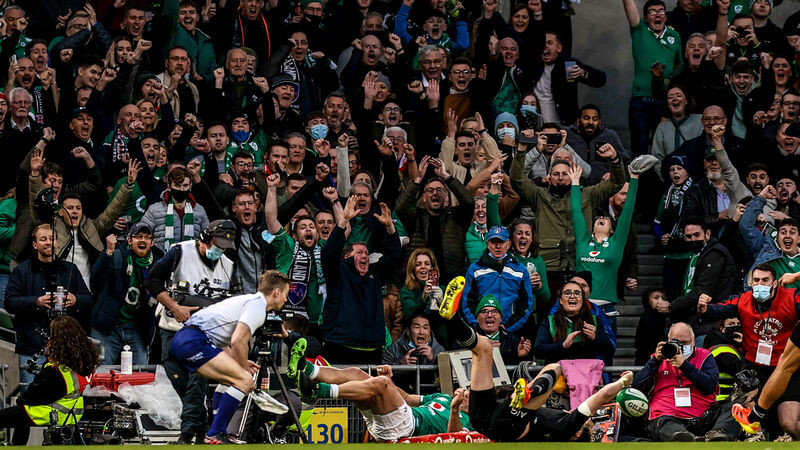Masks should be worn in outdoor congregated settings, says health chief

Picture: INPHO/Gary Carr
The HSE’s chief clinical officer, Dr Colm Henry has called on the public to wear masks in outdoor congregated settings such as sporting events.
Just because bars, restaurants and nightclubs were open did not mean that people had to go out every night, he said.










